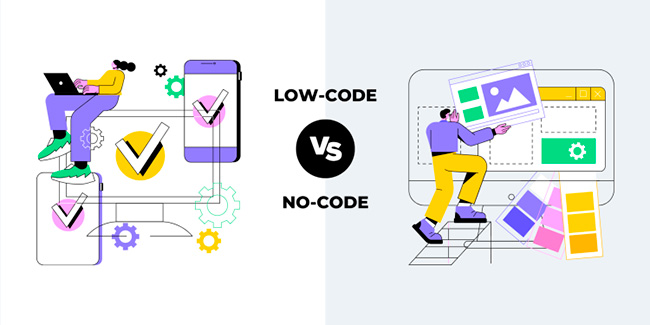

Platform Engineering in Software Development: The Key to Simplicity


Probably, every developer thought about their maximum productivity and creativity if they weren’t so busy with their repetitive tasks and complex infrastructures. Today, the only way to stay ahead is efficient software development, so developers can focus mainly on innovations and development. The thing that can help in reaching this height is platform engineering. If we look deeper, we’ll understand that it’s a revolutionary approach that integrates self-service platforms to accelerate application development and delivery. In this article, we offer you to join Introduct and dive deeper into the world of platform engineering that can transform software development processes and maximize productivity.
Understanding the Platform Engineering
To understand what platform engineering is, we need to find the way it works, how it differs from IT operations and DevOps and what tools it provides. Generally, platform engineering is responsible for enhancing the efficiency of software development teams. It includes automation, Infrastructure as Code (IaC), self-service interfaces, observability, security, scalability, and integration. At the same time, it provides comprehensive tools and environments for seamless application management. According to Gartner, it is expected that around 80% of large software engineering organizations will establish platform engineering teams as internal providers of reusable services, components, and tools for application delivery.
Platforms designed for developers to use or extend can significantly reduce repetitive work, making the development process smoother and more efficient. These platforms offer tools that:
- Enable developers to work independently with resources like starter kits and IDE plugins.
- Assist with routine tasks.
- Bundle common patterns and best practices into reusable components.
- Offer early guidance and feedback on issues or security risks.
- Simplify operations by handling the underlying infrastructure and tools.
Platform Engineering – why utilize it?
Efficiency and Productivity
For efficient and smooth work with a focus only on coding and faster feature delivery, automation and standardized environments are used. They help reduce manual tasks and allow platform engineering to minimize errors and accelerate development cycles.
Scalability and Reliability
Scalable infrastructure and reliable automation help applications increase loads and maintain high performance, as scalability is one of the most important things for businesses that need to support user bases and provide quality service.
Security and Compliance
It’s important to keep data safe from threats, and built-in security measures and checks are here to help with it. This step allows us to ensure that there aren’t any vulnerabilities and that an app meets all the requirements.
Challenges and Solutions
Challenges
Even though, platform engineering seems perfect for software development teams, there are still some issues that people and tech companies face while introducing platform engineering to teams. Here are some of them:
- Cultural Resistance. Teams used to old ways might resist change.
- Complexity. Integrating different tools and processes can be complicated.
- Scalability. Ensuring the platform grows smoothly with the organization is challenging.
Solutions
Of course, there might be some challenges, because people got used to working with old and familiar to them tools. To overcome these obstacles, organizations might consider the following steps:
- Culture of Collaboration: Teamwork should be really a team. It’s good when people communicate with all levels of the organization.
- Training and Support: Comprehensive training programs and support may be a good start when adopting new news and approaches.
- Components Incrementally: Introduce platform engineering components to avoid overwhelming teams and allow for adjustments.
- Modular and Scalable Solutions: Solutions should be easily scaled and managed. This way it can help to simplify the complexity of the new approach adoption.
- Continuous Learning: Continuous learning and improvement are the keys to successful integration and can help the team stay up to date with the latest technologies and so on.
How Introduct Can Help
Platform engineering can transform your software development process, making it more efficient, scalable, and secure. The examples of challenges and ways to overcome them will definitely help organizations make their business more efficient and obtain all the benefits of this approach. At Introduct, we focus on integrating new tools and making work more productive and less complex for developers. Our goal is to enhance software development processes and efficiency to meet our client needs and requirements. We offer a range of services, from consulting and implementation to ongoing support, ensuring that your development strategy aligns with your specific needs.
More Articles

QA Testing in App Maintenance: Ensuring Quality and Security QA Testing in App Maintenance: Ensuring Quality and Security
Probably everyone heard about the QA testing. But have you wondered how important QA testing is in app maintenance? With almost 2,200 cyberattacks happening every day, testers are here to help. Cyberattacks happen for different reasons: financial, political, or even ideological. They become more and more sophisticated as technologies continue to develop, putting people's data in danger.

Low-Code and No-Code Platforms — The Future of Software Engineering? Low-Code and No-Code Platforms — The Future of Software Engineering?
Nowadays, technologies are developing so fast that developers are willing to find some ways to simplify the way of application development but cater to different audiences and use cases. Using low-code and no-code platforms, regular people with basic knowledge of programming can create web and mobile apps.
